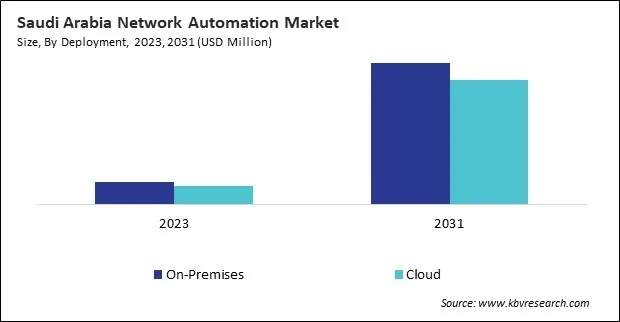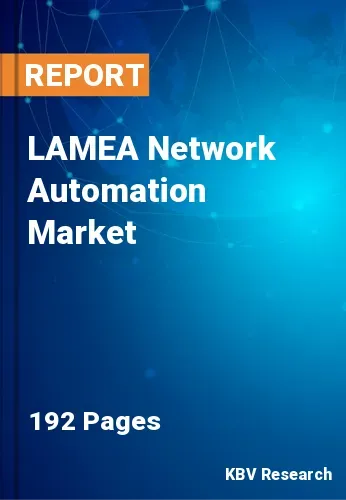The Latin America, Middle East and Africa Network Automation Market would witness market growth of 25.0% CAGR during the forecast period (2024-2031).
The Brazil market dominated the LAMEA Network Automation Market by Country in 2023, and would continue to be a dominant market till 2031; thereby, achieving a market value of $370.3 million by 2031. The Argentina market is exhibiting a CAGR of 25.8% during (2024 - 2031). Additionally, The UAE market would experience a CAGR of 24% during (2024 - 2031).

The adoption of network automation has been on the rise, driven by several factors, such as the complexity of modern networks, the growth of cloud computing, and the need for greater operational efficiency. One of the earliest adopters of network automation has been the telecommunications industry. Telecom providers have long been challenged to manage vast and intricate networks, and automation has enabled them to handle scale and complexity more effectively. With the advent of 5G networks and the push toward software-defined networks (SDN) and network function virtualization (NFV), telecom operators are increasingly turning to automation to deploy, manage, and scale their networks.
Enterprises across industries are embracing network automation to streamline operations and reduce costs. Large enterprises with complex IT infrastructures, particularly those in the finance, retail, and healthcare sectors, leverage automation to enhance network performance, improve security, and simplify network management. These organizations often use automated network monitoring, configuration management, and security systems to keep their networks secure, compliant, and running smoothly.
The deployment of 5G networks in Saudi Arabia requires advanced network automation solutions to ensure the efficient operation of high-bandwidth services and low-latency applications. 5G technology is expected to facilitate a wide range of digital services, from smart cities to industrial automation. Network operators need automation tools to support these innovations to handle the complexities of 5G networks, optimize traffic, ensure service quality, and minimize operational disruptions. Network automation will be essential to providing a smooth user experience and guaranteeing the scalability of Saudi Arabia's digital services as the country develops its 5G infrastructure. In conclusion, the growth of Brazil’s retail sector and Saudi Arabia’s 5G rollout are driving significant demand for network automation solutions in both countries.
Free Valuable Insights: The Worldwide Network Automation Market is Projected to reach USD 18.12 Billion by 2031, at a CAGR of 22.3%
Based on Enterprise Size, the market is segmented into Large Enterprises and SMEs. Based on Component, the market is segmented into Solution (SD-Wan and Network Virtualization Tools, Intent-Based Networking Solutions/Platforms, Configuration Management Tools, and Other Solution Type) and Services (Advisory, Analytics & Automation Services, Deployment & Integration Services, and Training Services). Based on Infrastructure, the market is segmented into Physical, Virtual, and Hybrid. Based on Deployment, the market is segmented into On-Premises and Cloud. Based on Vertical, the market is segmented into IT & Telecommunications, BFSI, Retail, Healthcare, Manufacturing, Government, Media & Entertainment, Education, and Others. Based on countries, the market is segmented into Brazil, Argentina, UAE, Saudi Arabia, South Africa, Nigeria, and Rest of LAMEA.

By Enterprise Size
By Component
By Infrastructure
By Deployment
By Vertical
By Country
Our team of dedicated experts can provide you with attractive expansion opportunities for your business.

